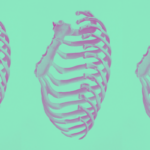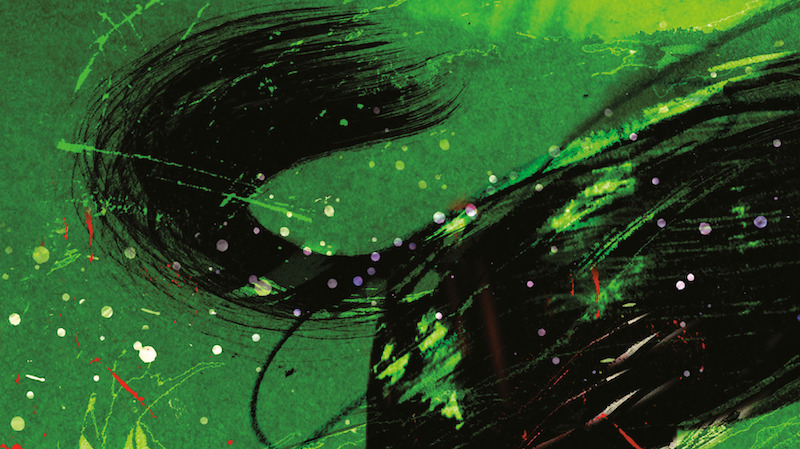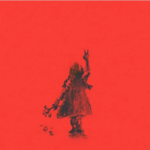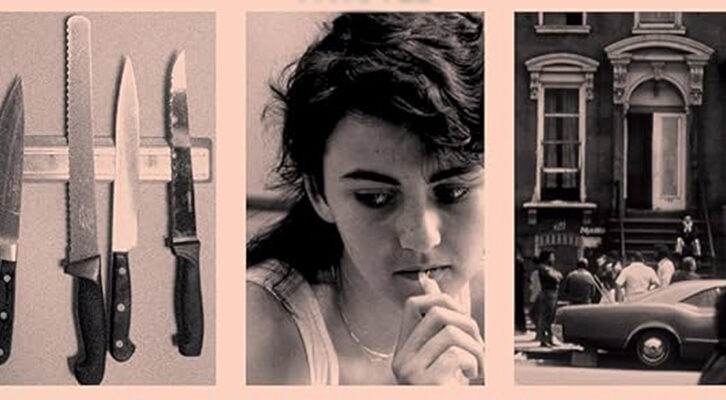On Coming of Age in a Discount Supermarket
Michael Jaime-Becerra Considers the Important Time He Spent in a Viva Mart
It is the summer that you are 16, and it is the summer of your first job bagging groceries at Viva Mart, the store that used to be Market Basket, the one in the Five Points Plaza, where Garvey Avenue intersects with Valley Boulevard and Mountain View Road. On the day that you start, your father is with you, the store busy with afternoon shoppers. Viva Mart is part of the supermarket chain that employs him, but he works at another store, as the manager of the meat department. He doesn’t seem to know anyone here.
From the grumbly way the Viva Mart manager greets you, your father uncharacteristically deferential when they shake hands in front of the cash registers, you understand that they are not friends and that your father has called in a favor to get you here. The store manager appraises you with the hardened, doubting glare of your high school’s JV basketball coach, and you immediately notice that both men have the same stiff posture and the same precisely kept moustache.
The store manager is not one of the other market guys who stop by weekday afternoons to drink beer in the garage before they succumb to whatever force pulls them home, not Art (whom your father greets by yelling “Hey, Dickie!” each time he comes up the driveway), or Dave, or Lucero with the encouraging, carefree laugh that makes him feel like an uncle.
And the manager is not one of the men who started your father off in the supermarket business, men whose names are spoken with reverence in his stories. Tommy or Brodie, who learned the meat-cutting trade from his father, a butcher with a shop in Boyle Heights, before passing it on to your father at Market Basket. Or the Grub, the guy your father used as a warning when you were little if you didn’t want to brush your teeth or shower.
You’ve long imagined the Grub like Pigpen from Peanuts—Pigpen grown into a supermarket butcher, dingy, blood-stained apron, his cimeter easing a Spencer steak away from a section of beef in the cold, early morning hours, the shift your father prefers because the meat department practically has the store to itself. A blaring radio and the Grub shouting obscenities at your father. Your father laughing before shouting more obscenities back.
On this June afternoon, you are dressed in a short-sleeved, white dress shirt, black Dickies pants, and the plain black dress shoes that you otherwise only wear to Friday-night, Catholic-school dances with mandatory dress codes. (The shoes are not your creepers with fake leopard-fur uppers or your pointy Doc Martens monk straps. The pants are not your other pair, over-dyed black Levi’s from Aaardvark’s, tapered with concealed safety pins that occasionally stab you in the thigh and a loose, jagged stitch around the knee, maroon thread chosen, not black, clearly the more fashionable choice.)
The shirt may be your old church shirt, which still fits your shoulders, the sleeves shortened and hemmed by your mother on her sewing machine. Or it may be one of your father’s secondhand work shirts, baggy and thin, redolent with his cologne. The shirt is clean, but all your father’s clothing has this spiced muskiness, even after the garments are washed or dry cleaned. Which shirt you’re wearing doesn’t really matter. Both will be worn again and again in the weeks ahead.
There isn’t anything particularly “Mexican” about Viva Mart.The store manager hands you the apron that the box boys wear, white polyester with red stripes, the thin, coarse material of the type for Halloween costumes. He tells you to start by sweeping the floors and he tells you to clock in, that the time clock is located in the stock room. Viva Mart isn’t where your mother usually shops, and yet you’ve been in here enough times to know to go to the left rear corner of the store. Nervous and uncertain about what’s to come, you find the stockroom’s black double doors and push through.
There, in the frigid, climate-controlled air, you encounter the stockroom’s sour funk, a gag-inspiring mix of dampened cardboard and produce turned to turtle food and milk gone way, way bad. You hold your breath and spot the rack with all the time cards, the clock below it. A few blank cards stand in the rack’s bottom right slot. You write your name on one and insert it, stamping the wrong side of the manila card, then doing it correctly, the time crooked across the corresponding section. Against a pallet of cardboard boxes of breakfast cereal or cat food or cartons of canned soup, you find the wide dust mop. You put on the apron, and when you emerge, appreciating the fresh air by the dairy case, your father is gone and you’re on your own.
*
You’re not new to bagging groceries. You’ve been doing it for your mother since you were a boy, at Alpha Beta and Santa Fe Farms, and sometimes at the Prune, the stand on the other side of town where your mother likes to buy her produce because it’s cheaper and because when you were little, the owner would give you grapes.
At Viva Mart, it takes a few days for you to get used to the rush, customers wanting to get through the line and out the door as fast as they can. There are some cashiers who seem to delight in overwhelming you, the bar-code beeps coming quick, the four-digit codes for produce automatic in their memory and entered at unforgiving speed.
J—is not like them. She’s younger, approachable. Over that initial week, she teaches you to keep the refrigerated and frozen stuff together and away from fruits and vegetables that don’t need to be cold, to not put fresh foods or paperboard packages with detergents and soaps, to double-bag when there are lots of canned goods. You take to her as if she is the older sibling you’ve always wanted. She’s in the habit of rolling her eyes at the other two box boys, and when she has to help you bag groceries, she doesn’t act as if she’s been forced to abdicate her throne.
There isn’t anything particularly “Mexican” about Viva Mart. The canned salsas, the dried chiles and spice packs are still limited to one section in the aisle where tortillas are the end cap display. The store often runs out of the white shopping bags with the green and red Viva Mart logo, shortfalls that make it seem like Market Basket doesn’t have confidence in the store, or in the customers it wants to attract.
You start to recognize Viva Mart as a several-steps-behind response to the Tianguis that Vons has opened ten minutes away. Your father speaks dubiously about that store’s taqueria and its bakers making fresh pan dulce. On weekends, there are supposedly mariachis in the parking lot.
In 30 years, there will be two true Latino supermarket chains with stores in El Monte, places with full-service food counters, four kinds of fresh salsa chilled in plexiglass tubs, queso fresco sold by the pound, pan dulce in regular and mini sizes, and bolillos so good that customers will gather around the empty bakery case, tongs and plastic bags ready for when the bread emerges from the oven, a palpable anxiousness among them that will seem better suited for the international arrivals terminal at LAX. There will be an irony here that will not escape you, as the names of these two companies will sound definitively and unapologetically “American”:
Northgate Market.
Superior Grocers.
*
Your father doesn’t say much to you about working at Viva Mart. No conversations about how it went, or advice on how to make it better as the lowest one on the ladder, nothing except for a reminder not to steal and to always have a receipt for anything that you’re eating, no matter how small it might be. On your third or fourth day, he checks up on you, appearing in the candy aisle.
He seems satisfied to see you with your hair combed back instead of hanging over your face, to see you wearing your apron and wielding the wide dust mop. When he goes, you have the impression that, by getting you this job, he understands some part of fatherhood to now be complete.
He is not the sort of father who drives you to work or picks you up when you get out. That is your mother’s job. She prefers to wait for you on the Miller’s Outpost side of the parking lot, past the Don Roberto’s jewelers and the Music Plus. It is less crowded there, your mother in her unmistakable white Lincoln, one of a series of long, cumbersome cars that she hates driving, but that your father buys her anyway because they appear fancier than they really are.
*
It is the summer you learn to iron a shirt, the summer your cheeks and upper lip burn from sweat finding fresh shaving nicks. You settle into a routine at the market, get good at greeting customers and thanking them for shopping at the store. After a trial period, you are scheduled for 36, sometimes 38 hours a week, enough to let you imagine full-time employment, but not enough to obligate Viva Mart to treat you like a full-time employee. Much of these hours are on weekends. Most of them are in the evening, six P.M. to midnight.
He is not the sort of father who drives you to work or picks you up when you get out. That is your mother’s job.You get two breaks over those six hours, and you avoid the break room if you can. The first time you saw it, with its beige walls, its beige folding chairs, and bare, beige folding tables, you wondered if you’d accidentally happened into the place where shoplifters are questioned before being handed over to the police. To sit there, with the posters on slip, trip, and fall prevention, with the eye-flush reference guide, and the labor law hotline numbers, is to absorb defeat in twenty-minute increments. It’s no surprise that other employees take their lunches in their cars.
*
You’re surprised when you find your first paycheck in your timecard slot because you’re not yet used to Friday being payday. You don’t have a bank account, so for a moment you don’t know what to do with the check, don’t how this slip of paper can be transformed into 64 actual dollars.
J—is at the lead cash register that day, the twelve-items-or-less register, a bummer since that one doesn’t require a box boy and the manager will think you’re being lazy if you help her. She tells you that you can cash your check at the store, at the customer service window near the right-side entrance where people buy money orders and pay their utility bills. The lady behind the glass there shows you where to sign your name.
On your break, you walk over to Music Plus and spend most of your money on two CDs: Stay Sick! by the Cramps and Psychocandy by the Jesus and Mary Chain, an album you had previously heard on a cassette dubbed by D—Psychocandy on one side, Darklands on the other). At school, D— is known for his perfect, wispy pompadour and “Suedehead” sideburns.
He introduced you to Melrose, a three-bus trek that broadened the possibility of your life. He will offer to make you a tape of Mary Chain B-sides that never materializes. One morning before class, when you ask him about it, he will stun you with the quiet admission that he’s sold all his records, the news landing with total bewilderment, bewilderment and then envy that he didn’t offer them to you first.
You return to the supermarket, already sensing that these two CDs are important purchases. Only there’s no place to put them. You don’t have a locker and you hadn’t thought ahead to this point. You ask J—if she can hold your Music Plus bag under the register, on the small shelf where she keeps her purse. She asks to see what you bought and you watch her expression flatten when she reads the band names and album titles on the CD longboxes. “Wow,” she says. “This looks like extreme stuff.”
You want to tell her about the Cramps, about Lux and Ivy, how they invented a life for themselves out of forgotten 45s and trash culture, how when they started, there was a guy in the band who didn’t know how to play guitar and whose job was to just make noise. And you want to tell her about the Reid brothers, how they took that idea further and hid their music inside feedback and static, how the louder you play this music, the more distorted and brilliant it becomes.
These are the songs that will leave your ears ringing. They are the songs that will keep you from feeling alone. But before you can get to any of this, J— is turning over the longboxes and reading the song titles. Her face shifts expressions again and you see yourself moved from one category to another, the CDs returned to the bag, the bag carefully folded shut, its contents not mentioned again.
__________________________________

This excerpt originally appears in Issue No. 116 (Fall 2019) of ZYZZYVA. Used with the permission of the publisher, PUBLISHER. Copyright © 2019 by Michael Jaime-Becerra.




















